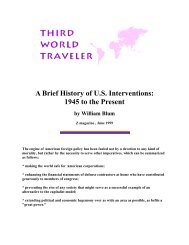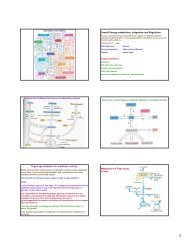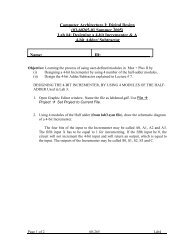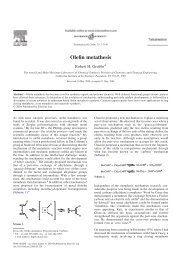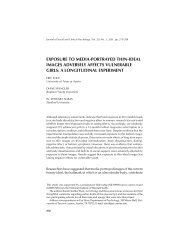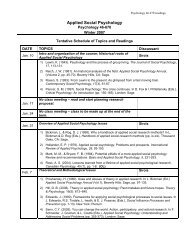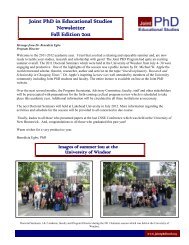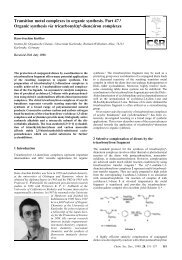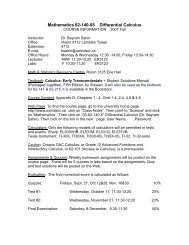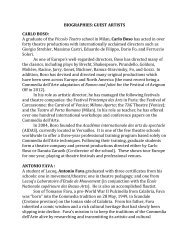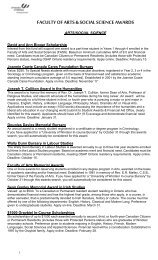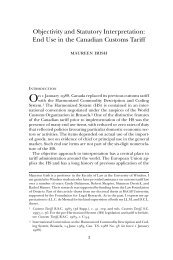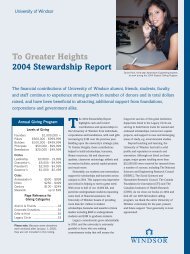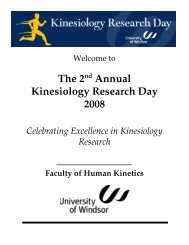Critical Social Work - University of Windsor
Critical Social Work - University of Windsor
Critical Social Work - University of Windsor
Create successful ePaper yourself
Turn your PDF publications into a flip-book with our unique Google optimized e-Paper software.
Brown<br />
voice within anti-oppressive theory and practice also has limitations. According to Baines<br />
(2007):<br />
So, just as the insights <strong>of</strong> anti-oppressive practitioners need to be analyzed in relation to<br />
critical theory and social values, so too, do the insights <strong>of</strong> clients, community members<br />
and activists. Voice cannot be taken at face value any more than the stories that clients<br />
tell about their experience (p. 25).<br />
According to Smith (1999), “experience, as it is spoken, is always social and always<br />
bears its social organization” (p. 96). Recognizing that experience is “ideologically cast” (Fuss,<br />
1989, p. 114), Smith (1987, 1990, 1999), and Haug (1992) suggest that we need to be concerned<br />
with how experience is socially organized. Rather than taking it at face value, the construction <strong>of</strong><br />
experiences is explored as a way to politicize and change the limits <strong>of</strong> essentialism (Fuss, 1989,<br />
p. 119). Haug (1992) reminds us that individuals cannot give objective accounts <strong>of</strong> themselves,<br />
rather they subjectively construct and transform their experiences “until their existence becomes<br />
relatively uncontradictory" (p. 9). Haug (1992) suggests that we need to attend to the paradoxes<br />
<strong>of</strong> experience in which experience is both an obstacle to, and a necessary aspect <strong>of</strong> how we can<br />
"know" the world. Life is an ongoing process <strong>of</strong> (re)constructions in which we represent<br />
ourselves.<br />
The degree to which theory is essentialist is <strong>of</strong>ten seen as a measure <strong>of</strong> its ability to be<br />
progressive or <strong>of</strong> its capacity to enable social change. Essentialism within feminist theory, for<br />
example, may reinforce sexist, stereotypical, or patriarchal categories <strong>of</strong> women and it<br />
entrenches individuals within oppressive social relations. Feminist essentialism entrenches<br />
women within patriarchal social relations through reinforcing patriarchal constructions <strong>of</strong><br />
femininity when it suggests, for example, that women are by nature caring, nurturing, passive, or<br />
simply victims.<br />
Likewise, those working with interpersonal violence may still presume men are by nature<br />
violent. In the 1980’s the idea that all men are potential perpetrators and all women potential<br />
victims was a common assertion within the women’s movement (Augusta-Scott, 2007).<br />
Similarly anti-racist essentialism may entrench racialized people within racist social relations<br />
through reinforcing racist and stereotypical constructions <strong>of</strong> race. Like with gender, race is <strong>of</strong>ten<br />
totalized and universalized. Diversity between and among women and racialized men and<br />
women is minimized. There is then one single story rather than many. Awareness <strong>of</strong> how we talk<br />
about gender, race, and class, for example, is a pivotal aspect <strong>of</strong> critical reflexivity.<br />
The anti-essentialist and critical stance <strong>of</strong> postmodern feminist epistemology provides a way in<br />
which to evaluate theories <strong>of</strong> anti-oppressive practice. However, the polarization <strong>of</strong> essentialism<br />
and constructionism, or the idea that "differences are constructed, not innate" is problematic as it<br />
obscures the way these approaches are "deeply and inextricably co-implicated with each other"<br />
(Fuss, 1990 p. xii). Further, Alc<strong>of</strong>f (1988) suggests that the postmodern alternative to<br />
essentialism or nominalism - "the idea the category <strong>of</strong> women is a fiction and that feminist<br />
efforts must be directed toward dismantling this fiction" only serves to make gender invisible<br />
again (p. 417). We cannot simply embrace the paradox <strong>of</strong> essentialism and nominalism in which<br />
difference is either denied - nominalism, or emphasized - essentialized. Alc<strong>of</strong>f develops the<br />
concept <strong>of</strong> positionality in an effort to go beyond this paradox. This third approach recognizes<br />
<strong>Critical</strong> <strong>Social</strong> <strong>Work</strong>, 2012 Vol. 13, No. 1<br />
43



